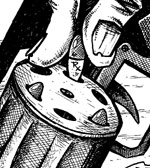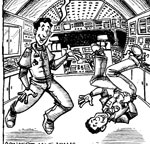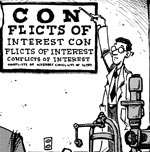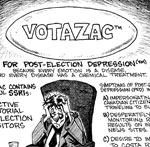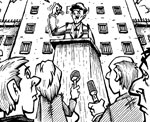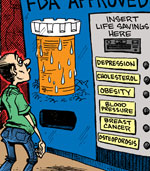Psychophysiological Insomnia - Worrying that Keeps You Awake
| Share on Facebook | Share on Twitter | Share on Google+ |
Psychophysiological insomnia is loss of sleep caused by worrying, specifically by worrying about losing sleep. Making a mental resolution that you will stop losing sleep over losing sleep, however, is not the answer.
The Origins of Psychophysiological Insomnia
Psychophysiological insomnia usually starts during a period of prolonged stress or after a major life challenge, such as the loss of a child or a spouse, bankruptcy, or imprisonment, but it may also develop slowly over a period of years. People with this disorder worry about being too tired to meet life challenges the next day, and the anxiety of loss of sleep causes loss of sleep.
Anxiety about insomnia may become so severe that even entering the bedroom triggers emotional tension. The anxiety gets worse as the night goes on, interrupted only by the necessity of getting up, tired, to face the new day.
Symptoms of Psychophysiological Insomnia
People who have psychophysiological insomnia usually have most of the following symptoms:
- Difficulty falling asleep
- Increasing anxiety and agitation as bedtime nears
- Constant worrying about sleep
- No other apparent cause for insomnia other than worrying about loss of sleep, no medical, psychological, or neurological explanation for sleep loss.
- No substance abuse or inappropriate medication that explains the condition.
People who have this kind of insomnia tend to be very tired during the day. To get through the day, they may drink large amounts of coffee or diet soft drinks, and take caffeine pills such as the North American brand Vivarin. They usually cannot take naps in their own beds, although they may be able to sleep when they are away from the bedroom, or when they are in a hotel or someone else's home.
Who Develops Psychophysiological Insomnia?
About 10 per cent of sleep center patients, corresponding to about 1 per cent of the general population, have this form of insomnia. It is rare in children, but it can occur in teens and adults of all ages. Psychophysiological insomnia is more common in women than in men.
Treatment for Psychophysiological Insomnia
Self-treatment for psychophysiological insomnia is usually unsuccessful. Alcohol for this condition, for example, helps the user fall asleep but then causes wakefulness a few hours later. The herbs most commonly used for insomnia are more useful for staying asleep, while psychophysiological insomnia is a problem with falling asleep.
Doctors sometimes prescribe hypnotic drugs such as zolpidem (Ambien) and zaleplon (Sonata). In addition, it may help to try all three of these kinds of supportive treatment:
1. Sleep hygiene. Going to bed at the same time every night, making sure the bedroom is dark and quiet, and avoiding caffeine at least during the evening will help make getting to sleep easier.
2. Cognitive therapy. Some people benefit from learning self-hypnosis or by listening to sleep training tapes.
3. Progressive relaxation. Tightening and releasing muscle groups from toes to head in succession, along with breathing exercises that a psychologist can teach, help many people fall asleep.
Before you decide you have psychophysiological insomnia, it's usually helpful to see a doctor to rule out other causes of sleep loss, especially sleep apnea. Getting more sleep reduces anxiety, and reducing anxiety by getting an accurate diagnosis will help restore sleep.
-
Skin CareMen Skin Care
-
Free ResourcesFree eBooks
-
Half of the modern drugs could well be thrown out of the window, except that the birds might eat them.Dr. Martin Henry Fischer
-
Featured Health Supplement
 If you find a product that is as effective as Total Balance, and is better value for money, let us know and we will give you a refund equivalent to your entire purchases of Total Balance…retrospective.
If you find a product that is as effective as Total Balance, and is better value for money, let us know and we will give you a refund equivalent to your entire purchases of Total Balance…retrospective.
-
